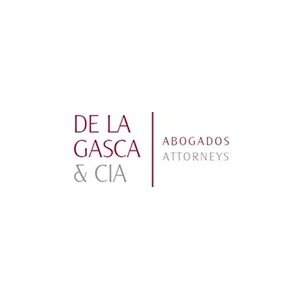Best ESG Advisory & Compliance Lawyers in El Salvador
Share your needs with us, get contacted by law firms.
Free. Takes 2 min.
Or refine your search by selecting a city:
List of the best lawyers in El Salvador
About ESG Advisory & Compliance Law in El Salvador
Environmental, Social, and Governance (ESG) Advisory & Compliance law in El Salvador is an emerging practice area aimed at helping businesses, investors, and other organizations align their operations with international and local standards for environmental stewardship, social responsibility, and transparent governance. Although ESG requirements are more established internationally, El Salvador has been making progress in integrating these frameworks into its own legal system. This involves compliance with environmental laws, labor and anti-discrimination regulations, and standards for robust corporate governance. ESG compliance is important for companies looking to gain trust from stakeholders, attract foreign investment, and maintain a positive corporate reputation both locally and globally.
Why You May Need a Lawyer
Legal assistance in ESG Advisory & Compliance can be crucial for various reasons. Businesses operating in El Salvador may need guidance to navigate the complex and evolving landscape of ESG regulations and best practices. Common situations where you might require legal assistance include:
- Ensuring ongoing compliance with environmental permits and regulations
- Implementing anti-discrimination and equal opportunity policies
- Developing transparent corporate governance structures
- Dealing with local authorities or government inspections related to ESG topics
- Responding to stakeholder or community concerns about company practices
- Attracting investment by meeting international ESG standards
- Integrating sustainable development goals (SDGs) into business operations
- Managing public disclosure and reporting on ESG initiatives
A lawyer experienced in ESG Advisory & Compliance can provide tailored advice, draft necessary documentation, and represent your interests in front of regulators or when disputes arise.
Local Laws Overview
El Salvador’s regulatory environment touching ESG issues includes a combination of mandatory laws and voluntary guidelines. Key elements include:
- Environmental Law: Covers waste management, emissions, water use, environmental impact assessments, and conservation.
- Labor Law: Sets requirements on fair wages, workplace safety, anti-discrimination, and workers’ rights.
- Corporate Governance: Frameworks for transparent management, ethical business conduct, and anti-corruption mechanisms.
- Sustainable Investment Guidelines: Voluntary initiatives promoting responsible investment aligned with sustainability objectives.
- Reporting and Disclosure: Emerging requirements for publicly traded companies and entities seeking financing to disclose ESG practices and risks.
Many ESG requirements in El Salvador draw on international standards, such as those set by the United Nations, the International Labour Organization, and other global bodies. Compliance is not only crucial for legal purposes but also for maintaining a good reputation and accessing global markets.
Frequently Asked Questions
What does ESG mean in the Salvadoran context?
ESG in El Salvador refers to practices and policies related to the Environment, Social responsibility, and Governance that companies must follow to ensure their operations are sustainable, ethical, and well-managed. These practices increasingly align with international standards.
Is ESG compliance mandatory in El Salvador?
Certain aspects, such as environmental and labor laws, are mandatory. Other ESG-related disclosures and initiatives are currently voluntary but may be required for accessing specific markets or benefits.
What are the main ESG risks for businesses in El Salvador?
Risks include failing to comply with environmental permits, lawsuits related to labor or discrimination, reputational damage from poor governance, and loss of investor trust due to lack of transparency.
Can foreign companies operating in El Salvador be held to ESG standards?
Yes, foreign companies operating locally must adhere to Salvadoran laws and, often, more stringent international ESG standards depending on their investors or partners.
What are the penalties for non-compliance with ESG laws?
Penalties can include fines, suspension of business activities, legal action from affected parties, and reputational harm that can affect business operations and access to financing.
How can a company demonstrate its ESG commitment?
Companies can publish sustainability reports, follow international ESG frameworks, implement internal monitoring systems, and seek third-party certifications.
Are there incentives for companies to adopt ESG practices in El Salvador?
Incentives may include improved access to financing, eligibility for certain government programs, and enhanced reputation, though specific tax or fiscal incentives are still developing.
What international standards influence ESG in El Salvador?
Standards like the United Nations Sustainable Development Goals, Global Reporting Initiative, and the International Labour Organization's conventions significantly influence local ESG practices.
Do small and medium-sized enterprises (SMEs) have to comply with ESG requirements?
SMEs must comply with mandatory local environmental and labor laws. Voluntary ESG commitments can help them access new markets or funding opportunities but are not strictly required.
How can a lawyer help with ESG compliance?
A lawyer can assess your current compliance status, identify risks, develop policies and internal codes, assist with reporting requirements, train staff, and represent you in any legal proceedings arising from ESG issues.
Additional Resources
If you need more information or support regarding ESG Advisory & Compliance in El Salvador, consider the following resources:
- Ministry of Environment and Natural Resources (MARN) for environmental regulations and permits
- Ministry of Labor and Social Welfare for labor law and workplace compliance
- Superintendency of the Financial System for corporate disclosures and governance requirements
- El Salvador Chamber of Commerce and Industry for business support and guidance
- International organizations such as the United Nations Development Programme (UNDP) and International Labour Organization (ILO) provide tools, training, and guidelines on ESG best practices
Next Steps
If you believe your business or organization requires legal assistance with ESG Advisory & Compliance in El Salvador, consider the following steps:
- Conduct a preliminary internal review of your company’s existing practices against local ESG requirements
- Identify key areas of risk or gaps in compliance, especially concerning environmental and labor laws
- Contact an experienced ESG or corporate lawyer who understands both Salvadoran regulations and international best practices
- Prepare relevant documentation, such as permits, policies, and any recent compliance audits, before your initial consultation
- Develop an action plan with your legal advisor to address immediate compliance needs and to build a long-term ESG strategy
Taking proactive steps to understand and comply with ESG requirements will not only help you avoid legal issues but also position your company for sustainable success in El Salvador’s evolving business landscape.
Lawzana helps you find the best lawyers and law firms in El Salvador through a curated and pre-screened list of qualified legal professionals. Our platform offers rankings and detailed profiles of attorneys and law firms, allowing you to compare based on practice areas, including ESG Advisory & Compliance, experience, and client feedback.
Each profile includes a description of the firm's areas of practice, client reviews, team members and partners, year of establishment, spoken languages, office locations, contact information, social media presence, and any published articles or resources. Most firms on our platform speak English and are experienced in both local and international legal matters.
Get a quote from top-rated law firms in El Salvador — quickly, securely, and without unnecessary hassle.
Disclaimer:
The information provided on this page is for general informational purposes only and does not constitute legal advice. While we strive to ensure the accuracy and relevance of the content, legal information may change over time, and interpretations of the law can vary. You should always consult with a qualified legal professional for advice specific to your situation.
We disclaim all liability for actions taken or not taken based on the content of this page. If you believe any information is incorrect or outdated, please contact us, and we will review and update it where appropriate.
Browse esg advisory & compliance law firms by city in El Salvador
Refine your search by selecting a city.













